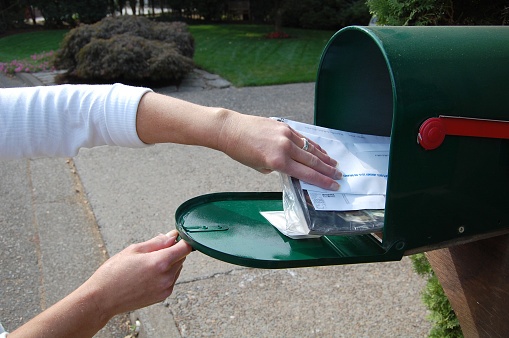Scura, Wigfield, Heyer, Stevens & Cammarota Blog
- Blog
What Actions are Prohibited by the Automatic Stay?

The moment a bankruptcy petition is filed, an event known as the Automatic Stay is triggered and the bankrupt debtor is protected from continued collection activities[i]. The Automatic Stay encompasses a wide array of prohibited activities. Commonly, a bankruptcy petition is filed to stop a foreclosure, to prevent a creditor from garnishing wages, or just to stop the harassing phone calls. But, the filing of a bankruptcy petition also mandates that a creditor take corrective action when inaction infringes on the rights of a bankrupt debtor. And when corrective action is not taken, it is the creditor that may end up paying the price.
The Filing of a Bankruptcy Petition Operates as a Stay Of:
(1) the commencement or continuation, including the issuance or employment of process, of a judicial, administrative, or other action or proceeding against the debtor that was or could have been commenced before the commencement of the case under this title, or to recover a claim against the debtor that arose before the commencement of the case under this title;
(2) the enforcement, against the debtor or against property of the estate, of a judgment obtained before the commencement of the case under this title;
(3) any act to obtain possession of property of the estate or of property from the estate or to exercise control over property of the estate;
(4) any act to create, perfect, or enforce any lien against property of the estate;
(5) any act to create, perfect, or enforce against property of the debtor any lien to the extent that such lien secures a claim that arose before the commencement of the case under this title;
(6) any act to collect, assess, or recover a claim against the debtor that arose before the commencement of the case under this title;
(7) the setoff of any debt owing to the debtor that arose before the commencement of the case under this title against any claim against the debtor; and
(8) the commencement or continuation of a proceeding before the United States Tax Court concerning a tax liability of a debtor that is a corporation for a taxable period the bankruptcy court may determine or concerning the tax liability of a debtor who is an individual for a taxable period ending before the date of the order for relief under this title.
11 U.S.C.A. § 362(a).
Comfort Orders
Motions to terminate, annul, or modify the automatic stay are specifically defined as core proceedings under 28 U.S.C. § 157(b)(2)(G). But because the acts proscribed by the Automatic Stay are so broadly defined, it is not uncommon for parties to disagree if the stay applies to a given set of facts. In that event, creditors routinely seek a “comfort order” when there is any doubt that an action may be prohibited. A comfort order is essentially a bankruptcy court’s blessing that an act is not subject to the stay. Once in hand, a comfort order can then be presented in state court proceedings to support a creditor’s claim that an action may continue or be commenced. Often times, comfort orders are requested when a plaintiff is seeking to recover from a debtor’s insurer, but not the debtor itself. Or, just as often, comfort orders are sought in connection with matrimonial actions.
When Does the Automatic Stay Expire?
Except in limited circumstances, the Bankruptcy Code provides that the stay of an act against property of the estate continues until the property is no longer property of the estate. 11 U.S.C. § 362(c)(1). The stay of an act against the debtor, or property of the debtor, continues until the earlier of the time the case is closed, dismissed, or a discharge is granted or denied. 11 U.S.C. § 362(c)(2). The stay can also be terminated, annulled, or modified by obtaining a bankruptcy court order.
When Is the Stay Not Automatic?
The filing of a bankruptcy petition does not always trigger the Automatic Stay. For instance, a debtor may be barred from filing a bankruptcy as a result of previously abusing the process. Or, a debtor may be a serial bankruptcy filer, in which event the stay may only be temporary or an order imposing the stay must be obtained before the stay goes into effect.
The Automatic Stay is perhaps the most valuable relief afforded one seeking bankruptcy protection. But because the actions it prohibits (or compels) are oftentimes unclear, and because the stay is not always in effect without affirmative steps to install it or extend it, experienced bankruptcy counsel should be consulted to help navigate the complexities of the Bankruptcy Code.
[i] There are situations in which the stay will not be automatically triggered or in which the stay will expire after thirty-days: e.g. serial filings. 11 U.S.C. § 362(c)(3) and (4).

David L. Stevens
I have a passion for what I do. There are few things I enjoy more than helping good people and viable businesses find solutions to overwhelming debt.
Share Article
Need Help? Contact Us Today!





Lists by Topic
- Bankruptcy (323)
- Personal Injury (95)
- Chapter 13 (52)
- Chapter 7 (51)
- Debt Management (50)
- Foreclosure (47)
- Accident (32)
- Car Accident (27)
- Chapter 11 (25)
- Business Bankruptcy (20)
- Insurance Claims (19)
- Credit (18)
- Business Law (13)
- Employment Law (12)
- Litigation (12)
- Probate and Estate Law (11)
- Damages (10)
- Medical (10)
- Product Liability (10)
- Workers Compensation (10)
- Attorney (9)
- Consumer Bankruptcy (9)
- Commercial & Residential Real Estate (6)
- Slip and Fall (6)
- Contracts (5)
- Premises Liability (5)
- Repossession (5)
- wrongful death (5)
- Video | Bankruptcy (4)
- Bankruptcy Cost (3)
- Corporate Litigation (3)
- Trial Law (2)
- student loans (2)
- tax (2)
- Attorney Fees (1)
- COVID-19 (1)
- Certified Civil Trial (1)
- Dog Bites (1)
- News (1)
- Relocation Assistance (1)

